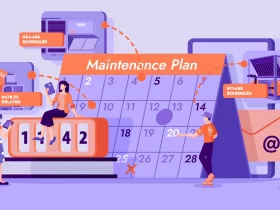Oncology trial design by organizations like Veristat generates a huge amount of data, leading to more efficient data collections and integrations throughout the clinical studies. Today’s studies utilize disparate systems to collect data, making it much easier for researchers to manage trials and uncover valuable insights about the developing studies.
Oncology clinical trial design has led to increased data collection in both the complexity and scope of the study protocols. According to Tufts CSDD Impact Reports, about 77% of CROs and sponsors find it difficult to load data to their primary EDC systems dues to compatibility, integration challenges, and technical demands. It also reports that CROs and sponsors use about six different applications to support clinical trial activities.
What is the importance of data integration in oncology trials?
Tech allows sponsors to integrate and aggregate study data that can greatly improve the efficacy of a trial. When the study managers use a holistic tool rather than comparing data across multiple tools, it leads to getting actionable insight all under one roof. This also allows faster and easier comparative analysis. Tools that help integrate data come with benefits such as better study collaboration making a great tool that allows better data visibility across all the data collected throughout the trial period. The reduced manual process is a great tool that reduces the burden on the study team and also lowers the trial costs. Increases trial oversight and this helps reduce the risk and performance issues
What is the importance of clinical trial data to the different stakeholders?
Some of the stakeholders who benefit from clinical trial data include:
Patients
Patients can review the results of past trials based on the disease and condition they have to evaluate if they will join any trial. When such vital information is available to the patients, they can make more informed decisions on the available treatment options even when they are still under investigation. Access to such information also helps them communicate better with their doctors and helps the patients advocate for their health.
Clinicians
Data helps clinicians keep themselves up to date with the state of the ongoing trials in their fields. This ensures that they provide their patients with the required information. This includes whether a particular trial is ideal for a patient and the potential risks and benefits of joining the trial.
Clinical trial participants
Clinical trial participants get to understand the trial better and understand the context in which the clinical trials are being conducted. Once a clinical trial is done, they can review the data and compare it with other studies of the same nature and make better health decisions.
Researchers
When presented with data from previous studies, researchers and research organizations can design studies that will run more efficiently while remaining unbiased. Designing a clinical study from previous data helps save time, money, and other resources and reduces the chances of running an ineffective trial.
Data in clinical trials is quite crucial. When well integrated, it will benefit all the stakeholders in the trial leading to more efficient trials.










